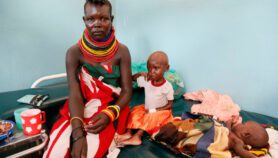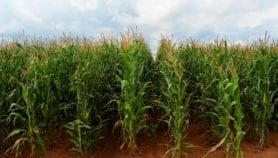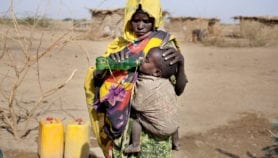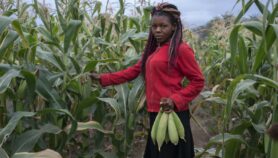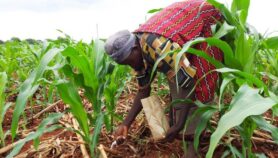22/09/21
Study finds gender gap in benefits of plant clinics
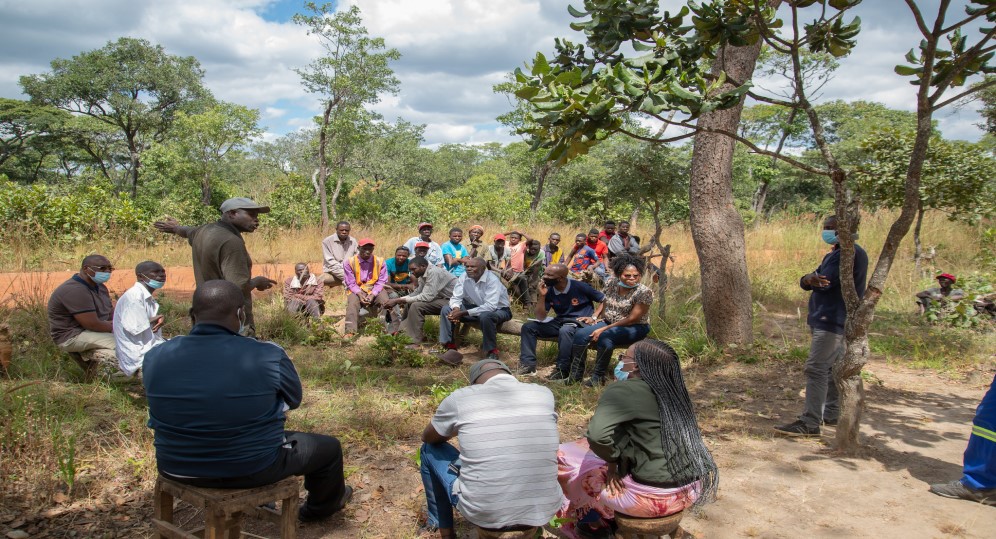
By: Ijeoma Ukazu
Send to a friend
The details you provide on this page will not be used to send unsolicited email, and will not be sold to a 3rd party. See privacy policy.
[LAGOS] Male smallholder farmers who participated in plant clinics in Zambia gained more in terms of technology adoption and food security than their female counterparts, a study found.
Plant clinics are meeting places where farmers bring in samples of their infested, ‘sick’ crops and receive advice from extension workers trained as plant doctors.
“Plant clinics have grown in popularity and importance in Sub-Saharan Africa, particularly in the wake of the outbreak of the devastating fall armyworm pest,” says Justice Tambo, a coauthor of the study.
The study, published in the September issue of World Development, was based on gender-disaggregated data from maize producers in Zambia. It found that among female farmers the benefits from using plant clinic services were more pronounced for women who were head of the household than for female spouses, signifying the advantage of women’s decision-making power in the home.
“Maximising the effectiveness of plant clinics for female farmers would require providing them with additional support to implement the knowledge gained.”
Justice Tambo, CABI
“Maximising the effectiveness of plant clinics for female farmers would require providing them with additional support to implement the knowledge gained as well as addressing underlying gender inequalities and power relations,” explains Tambo, an agricultural economist at the Centre for Agriculture and Biosciences International (CABI, the parent organisation of SciDev.Net).
“The plant clinic extension approach has expanded rapidly over the past decade, with about 5,000 plant clinics established in over 30 countries across Africa, Asia and Latin America,” Tambo says. In Zambia, there are 172 plant clinics, which have so far attended to over 12,000 farmers’ queries, he added.
The study was conducted using data from 837 smallholder households comprising 444 plant clinic users and 393 non-clinic users cultivating 1,048 maize plots in rural Zambia during the 2018-2019 farming season.
Researchers examined whether male and female farmers accrued similar benefits from participating in the clinics, in terms of improved management of crop pests, crop productivity and food security.
“We find that participation in plant clinics stimulates the adoption of multiple pest management strategies, which boost maize yield and income by 14 per cent and 27 per cent respectively, and ultimately help to stave off food insecurity,” says the study.
“A disaggregated analysis shows that both male and female farmers achieve positive outcomes from using plant clinic services but the effects are disproportionately greater for male farmers.”
The study adds: “Male and female clinic users are respectively about 110 per cent and 69 per cent significantly more likely to adopt chemical control than non-clinic users.”
Tambo tells SciDev.Net that the findings suggest that plant clinics allow both male and female farmers to increase the adoption of crop protection techniques — but this is not sufficient to overcome the gender disparity in agricultural productivity.
Adamu Fidelis, the founder of MyFarm Nigeria, says: “Women will bring more [outputs] in farming if given equal opportunity as their male counterparts.
“Plant clinic is not working here in Nigeria and one of the reasons is because there has not been full inclusion of females in decision-making.”Fidelis calls on African policymakers to enable women to access free farmlands to boost food security and household incomes.
This piece was produced by SciDev.Net’s Sub-Saharan Africa English desk.









